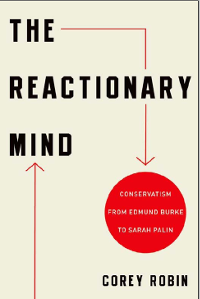"Big Government" Can be Good or Bad
Like many conservative shibboleths the fear and paranoia intended by using the phrase "big government" is hopelessly reactionary and profoundly simplistic and nonsensical. There are two extreme cases you can imagine to illustrate the banality of this stock libertarian conservative fear mongering phrase. One is to imagine a fascist authoritarian government which completely takes over the running of society, and we've seen examples, since this is what Hitler did from the right wing and what Stalin did from the left wing. In running a state along authoritarian lines you are really taking your nation out of the left-right political axis into an orthogonal space which is neither left nor right, because it neither supports egalitarian social justice (left) nor free markets (right). Both are convergent in the use of state power to suppress dissent and enrich a few at the expense of the poor (Soviet apparatchiks lived lives much like capitalist oligarchs, at least in terms of their disproportionate access to raw power).
The other extreme is to imagine a completely fair and just non-authoritarian government, but a big government which is socialist and helps all people. Such a socialist government would permit greater individual freedom than a capitalist or authoritarian centralized government. How it might do so would be through regulations on private business preventing unjust exploitation, and essentially eliminating the class divisions, so that all people have an equal share and say in how their work places are run. But to ensure justice and non-corrupt enforcement of such democratic regulations the state would need to be a "big government".
But such a social democratic government would be "big"only in order to support private free enterprise, which socialists would call worker cooperatives.
This is why the conservative fear of "big government" is bullsh*t propaganda. There are good ways to use big government (help worker cooperatives thrive) and bad ways (dictate to society all the rules).
I hope people can see how well-meaning conservatives and well-meaning socialists are actually both in favour of the good variety of big government. And no conservative should be in favour of "small government" as an empty pablum, because a small government allows an unregulated free market, which is antithetical to private enterprise. Under an unregulated free market winners take all, which leads to monopolies and gross inequalities, which is the opposite condition to what a free market is supposed to start from. An unregulated free market is thus a dynamical paradox: it could start out fair and equal, but if unregulated a free market soon devolves into a capitalist structure where only a few wealthy and powerful oligarchs arise and prosper at the expense of everyone else.
This is not a theoretical argument, we've been living through a period in history of exactly this dynamic. People wonder why worker wages have remained stagnant in real terms while the oligarchs have amassed increasing returns on their wealth? It is not because of any corruption or fraud (which certainly exists), it is because of the system we call free market neoliberal capitalism. Getting rid of the "neoliberal" in this system would not help at all, it'd only accelerate the process of monopoly formation and increasing economic inequality, and thus (by systematic consequence) increasing social and political inequality.
So thinkers from John Locke and Thomas Hobbes (The Leviathan), to Frederik Hayek and Grover Norquist have all profoundly and cynically exploited the natural fear of dictatorship implied by the phrase "big government" in order to promote ideas that George Orwell (a life long social democrat and who wrote about "big brother" and a surveillance state capitalism, eerily prescient of our current times under corporate neoliberalism) would have deplored.
As for my own preference: I want government to be big on regulating activities that are harmful to society, but otherwise I want government out of our private lives. This is usually what I would call social democracy. I think it is closer to Karl Marx and George Orwell rather than it is to modern conservatism or neoliberalism.
A good read on the flaws and fallacies of conservative reactionary thinkers is Corey Robin's "The Reactionary Mind".
It is a great book for understanding the way the more popular cause of the socialist democratic movement has been stifled and suppressed by generations of conservatives who coopt socialist populist rhetoric for capitalist conservative gain. (Don't go watching Fox News, for heavens sake, but they have a great exemplar of this type of reactionary conservatism in their arch populist right winger Tucker Carlson - a trust fund baby who preaches worker rights and economic nationalism but for purposes of propping up oligarchy and bigotry).
You can hear Robin talk about his work at this Forum:
